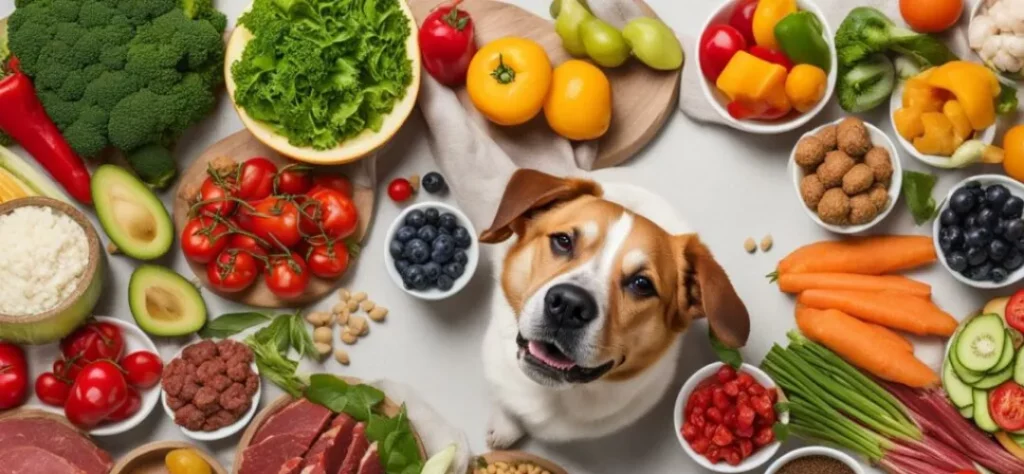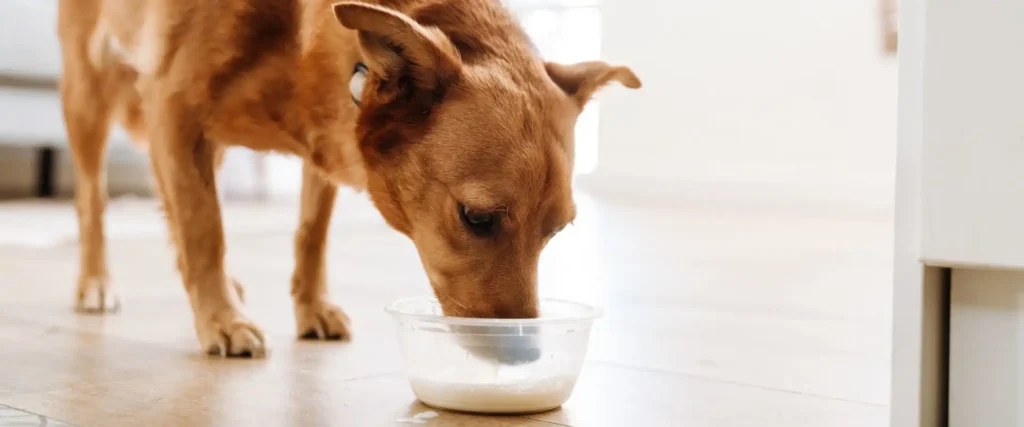We humans eat a variety of foods, and sometimes we want our dogs to enjoy the goodness of different foods and supplement balanced nutrition. But dogs are different species from us, and some of the foods we eat that are harmless may be “highly poisonous” to them.
What kind of food can dogs eat? What not to eat? A total of 37 common foods in daily life are listed below. (Red light: 13 / Yellow light: 9 / Green light: 15)
Every time before giving something to your dog, make sure “whether the dog can eat it” before giving it to him. This will make the dog happy and we can feel at ease!

13 “dangerous” red-light foods that dogs should never eat
1. Chocolate
Chocolate foods contain theobromine, which can damage the central nervous system, cause violent heartbeats, heart failure, and eventually breathing difficulties or even death. If you accidentally ingest it, you must seek medical attention immediately even if you don’t see any symptoms.
2. Bulb plants (scallions, garlic, onions, leeks)
These “strong-smelling” plants contain carbon dioxide. “A very small amount” will cause the dog’s red blood cells to rupture and fail to coagulate, leading to anemia, vomiting and diarrhea, hematuria, fever, and even shortness of breath and death, making the dog absolutely Stay away from it.
3. Grapes
“Grapes” and “raisins” are both fatal killers for dogs. Its toxicity lies in the “skin” and “seeds”, which can cause acute renal failure, drooling, vomiting and diarrhea, and even paralysis and death in dogs. Do not Let the dog eat it by mistake.
4. Hawaiian beans
Generally, nuts have a high oil content, so it is not recommended for dogs to eat them in large quantities, and “Hawaiian beans” are even more inedible.
Its toxicity can cause vomiting, panting, hyperthermia, muscle spasms, and paralysis in dogs. Symptoms usually appear within 12 hours after ingestion and may last 12 to 48 hours.
5. Raw eggs

Raw egg whites contain a protein called corylan, which will consume vitamin H (one of the B vitamins) in the body after being eaten by dogs, causing this vitamin to be deficient and affecting its protection for dogs.
This can lead to hair loss, weakness, growth retardation, and bone deformities. It is still recommended to give your dog hard-boiled eggs.
6. Sashimi
Raw fish contains a large amount of “thiamine enzyme”, which will destroy the vitamin B1 in the dog’s body after eating it, leading to loss of appetite, nervous system disorders, epilepsy, etc. Raw fish also has “parasite” problems, so why not eat it? Let the dog eat.
7. Potatoes with skin on
The “skin” of potatoes contains a high amount of “solanine”, which is toxic to dogs and cannot be removed even if it is cooked. It can cause vomiting and diarrhea, drop in blood pressure, coma, respiratory paralysis, etc., so dogs eat it Be sure to clean the potato skins!
8. Xylitol
“Xylitol”, which is commonly used in chewing gum, biscuits, candies, cakes and other human foods, is fatally toxic to dogs. If ingested by mistake, dogs will secrete a large amount of “insulin”, causing vomiting, drowsiness, epilepsy, and brain damage. .
Severe cases may lead to liver failure or even death. It is safest to avoid giving your dog human food.
9. Avocado
Avocados contain a special toxin that is very dangerous to dogs. If eaten by mistake, dogs will suffer from vomiting and diarrhea, difficulty breathing, hydrocardial accumulation, and even death. Dogs must be prohibited from contacting it.
10. Fruit seeds
Many fruit “seeds” contain “cyanide” or substances that are toxic to dogs, such as apples, plums, cherries, peaches, pears, star fruit, etc., which can cause dizziness, epilepsy, coma, and even life-threatening breathing difficulties.
Although the “pulp” is safe and harmless to eat, remember to remove the “seeds” before giving it to your dog.
11. Animal bones
In the past, it was considered normal for dogs to chew bones, but now it is actually not recommended.
Because dogs will swallow broken bones (cooked bones can be easily chewed), these bone fragments may pierce the throat, cut or puncture the digestive tract, causing serious consequences.
12. Alcohol
Whether it is alcoholic beverages or alcoholic food, you must avoid giving it to dogs, because just a little bit of alcohol may cause “alcohol poisoning” in dogs, damage the kidneys and brain, and cause vomiting, diarrhea, convulsions, and breathing problems. Difficulties, coma, and even death.
13. Coffee and tea

Similar to alcohol, dogs should not touch beverages and food containing coffee and tea, because the “caffeine” in them can easily exceed the tolerance level of the dog, which can cause vomiting and diarrhea, rapid heartbeat, epilepsy, and general malaise. Trembling can also lead to the dog’s death.
Dogs can eat it, but they need to be “careful” about the 9 yellow light foods in moderation
This kind of food should be eaten in moderation. It is recommended to give it in small amounts of 2 to 3 pieces/small pieces first. Once you can eat it, do not eat more than 1 times the amount. A fixed but not excessive amount is the safest for dogs!
1. Tomato
The “stems, leaves” and “immature” fruits of tomatoes contain solanine and solanine. Eating them by mistake can cause gastrointestinal discomfort, limb disorders, and muscle weakness in dogs.
Therefore, if you want to feed tomatoes to your dog, remember to peel off the “leaves” and make the tomatoes “ripe” before feeding them to your dog.
2. Milk

Many dogs’ bodies are unable to break down the lactose in milk and will develop “lactose intolerance”, leading to indigestion and diarrhea.
However, “processed” dairy products, such as yogurt, cheese, etc., have greatly reduced the lactose due to fermentation and processing, so dogs can eat them, but it is still recommended to give them in small amounts.
3. Persimmon
Ripe persimmons and persimmon skins contain alkaloids, which can easily cause vomiting, diarrhea, drooling, and difficulty breathing in dogs if ingested.
Therefore, it is recommended that dogs eat “peeled” and “ripe” persimmons. However, it is still not recommended to consume too much. Excessive consumption may still cause gastroenteritis in dogs.
4. Pineapple
Pineapples contain “alkaloids” that can irritate the oral mucosa. They also contain specific pineapple proteins that are more likely to cause allergies to dogs, especially in “unripe” pineapples.
Therefore, in addition to choosing “ripe pineapples”, you can also soak pineapples in “light salt water” to remove alkaloids, which will be safer for dogs!
5. Citrus fruits
Citrus fruits such as willows, grapefruits, oranges, and grapefruits have nutritious and delicious pulp, and are also suitable for dogs to eat.
However, their “peels” and “seeds” are harmful to dogs. Eating too much will cause vomiting and diarrhea. They must be carefully “removed” and reduce the “grease” of the citrus peels from contaminating the pulp before they can be eaten by dogs.
6. Spinach
Spinach contains a high amount of “oxalic acid”, which can prevent calcium absorption, affect metabolism, and cause kidney damage.
Excessive intake can also lead to kidney stones, muscle weakness, abnormal heart rhythm, etc. Although it is a vegetable that dogs can eat, special attention should be paid to the amount of consumption.
7. Liver
Liver is a very nutritious and delicious food for dogs, but it is rich in “vitamin A”. However, if you supplement too much, it will cause vitamin A poisoning, causing pain, lameness, tooth loss, obesity and other problems. Therefore, you must not eat it because of it. Dogs love to eat, so give them too much!
8. Peanuts
Peanuts are a food that is more likely to cause “allergic” reactions, and the allergic reaction is greater than other foods. Dogs are also likely to be allergic to peanuts, causing symptoms such as skin redness, itching, hair loss, and sneezing. You can Give your dog 2 to 3 peanuts to try first. If he is not allergic, you can give them to your dog regularly.
9. Raw meat
In fact, raw meat itself has no toxicity problem, and it is natural to feed it to dogs. However, the ASPCA (American Society for the Protection of Animals) lists it as a food that is “not recommended” for feeding. The main reason is to consider “parasite” and “bacterial” contamination. It is recommended Make sure the source of the meat is safe and can be eaten raw before giving it to your dog.
15 “healthy and nutritious” green light foods that dogs can eat
This type of food is nutritious and healthy for dogs. It is a good choice to add vegetables to dogs and increase the richness of their diet.
Foods not listed among them do not necessarily mean “inedible” or “unsuitable” for dogs. We just give priority to foods that are convenient and nutritious. If there are foods you want to try but are not sure about, you can ask your veterinarian before giving them!
1. Boiled eggs
Boiled eggs are a good source of natural “protein” for dogs. The egg yolks are also very fragrant and can stimulate the dog’s appetite. However, because egg yolks contain more cholesterol, remember not to overdose. 3-4 eggs a week is considered a lot!
2. Boiled meat
Except for beef, it is recommended that other meats be cooked before being eaten by dogs. You can usually try which kind of meat your dog likes more to increase the intake of good protein. However, you should give less fat meat and skin to avoid increasing the weight burden of your dog.
3. Pumpkin
Pumpkin is rich in “dietary fiber” and “vitamins”, which can help dogs’ gastrointestinal motility and protect their eyes. Most dogs like the sweetness of pumpkin, but pumpkin is starch, and eating too much will still make you fat.
4. Carrot

It is a super nutritious vegetable and seems to be more accepted by dogs than children. It can be cut into small pieces and eaten with meat to increase “fiber”, “vitamin B” and “vitamin C”.
5. Cauliflower
Cauliflower is a cruciferous vegetable, which is very helpful for strengthening the body and enhancing immunity. Dogs usually do not reject its taste. When you want to supplement vegetables for your dog, it is better to eat it with some meat or cooked eggs!
6. Banana
Bananas are rich in potassium, vitamins B6 and C, and are also a good helper in helping gastrointestinal motility. The sweet taste is usually irresistible to dogs. It can be used as a reward snack to replace dog biscuits, which is healthier.
7. Apple
Apple is a very nutritious fruit, and it is highly recommended for dogs to eat it. However, its “core” is toxic, so when you want to give it to your dog, you must remove the core and cut it into small pieces for it to eat!
8. Guava
Guava’s “vitamin C” and “fiber” are among the best in the fruit world, and it is also a nutritious food suitable for dogs. However, eating too many guava seeds may be harmful to digestion. It is recommended to dig them out before feeding them to dogs.
9. Papaya
Papaya is rich in vitamins A, C, E and enzymes. It is very healthy and helpful for gastrointestinal digestion. However, the seeds are also slightly toxic, so be sure to clean them before giving them to dogs!
10. Watermelon
Watermelon is cool, hydrating and sweet. It is also a very popular food for dogs. It is easy to accidentally feed too much to dogs. However, dogs will lose weight if they eat too much watermelon. Just like other fruits, they must be eaten in moderation. oh!
11. Mango
Mango is not only delicious, it is also a nutritious food rich in vitamins A, B6, C and E. However, mango skin is more likely to cause allergies, so it is recommended to remove the skin and seeds before feeding it to dogs.
12. Strawberry
Strawberries are also recommended as healthy snacks for dogs! As long as you pay attention to washing the strawberries to reduce pesticide residues, there is no problem in itself for dogs.
13. Dragon fruit

Little ones who are good at defecating must not miss it, because dragon fruit is rich in “fiber” and “enzymes” and is an excellent healthy food for dogs.
14. Lotus mist
Although less common, it is one of the fruits that is safe for dogs and can be safely given to dogs. It is not high in calories and is suitable as a snack for dogs.
15. Blueberries
Blueberries are rich in “vitamin C” and “antioxidant” substances. Unlike grape skins and seeds, which are toxic to dogs, blueberries are a great healthy food for dogs. They are also suitable as snacks and rewards for dogs. .
A healthy and strong intestines and stomach can protect the health of your furry baby
If you want your dog to taste delicious food and enjoy it together, you must have a healthy and strong digestive tract. Otherwise, dogs with weak stomachs will easily suffer from diarrhea and constipation no matter what they eat, even if the food is green food and full of nutrition.
Therefore, if you want to help dogs build a high-quality digestive system, it is recommended to eat probiotics every day for maintenance, establish a good gastrointestinal environment, raise good bacteria to protect the body, etc. These are all good choices to enhance the quality of your dog’s life and promote health!
Before choosing probiotics to help dogs maintain their gastrointestinal health, it should be noted that when dogs eat toxic substances or eat red and yellow light foods and have adverse gastrointestinal reactions, they should first be examined and treated by a veterinarian. Provide appropriate rescue to the dog as soon as possible. Probiotics are health foods, not medicines, and do not have any medical effects.
